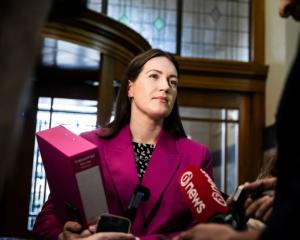The study by University of Otago epidemiologists and public sexual health clinics in Dunedin, Auckland, Hamilton, Wellington and Dunedin recorded visits to the four sexual health clinics during the time of the RWC.
About 7% (151 people) of the people who went to clinics between September 12 and November 15 last year had "RWC-related sex".
They included New Zealanders who had sex with an overseas visitor in the country for the event.
Only about 20% had used a condom.
The also study showed that more men visited the clinics after RWC-related sex than women.
Compared with other men who visited clinics, those who had RWC-related sex had twice the risk of chlamydia, three times the risk of non-specific urethritis and five times the risk of gonorrhoea.
Wellington sexual health clinician Dr Jane Kennedy said this indicated that, for men, "sex related to the Rugby World Cup may have been more risky".
The study also showed that most had consumed three or more alcoholic drinks.
Study co-author Prof Jennie Connor, from Otago University, said this was "not surprising" given the promotion and availability of alcohol around the event, and New Zealand's drinking culture.
In future events like the RWC, authorities should be more "vigilant" around the promotion and availability of alcohol, Prof Connor said.
The link between the RWC and alcohol was fostered in part by alcohol sponsorship and the Government's decision to relax licensing laws at the time of the event, she said.
"If the RWC wasn't sponsored by and positively promoting alcohol, then it wouldn't be such a boozy affair."
It was her belief that alcohol sponsorship should be withdrawn from all sport.
Another way to reduce risk was through continued promotion of condom use and making sure condoms were easily accessible.
Clinical leader at Dunedin Sexual Health Clinic Dr Jill McIlraith said one "concerning" finding from the study was that four of the 54 women (7%) who visited clinics after RWC-related sex said it had not been consensual.













